Information about fake numbers associated with Clinique de La Source
Google incorrectly indicates that telephone numbers are assigned to Clinique de La Source.
-
Main specialities
- Anaesthesiology
- Cardiology
- Orthopaedic surgery and traumatology
- Plastic, reconstructive and esthetic surgery
- Visceral and thoracic surgery
- Gastroenterology
- Gynaecology and obstetrics
- Intensive medicine
- Nuclear medicine
- Neurosurgery
- Neurologie
- Medical and surgical oncology
- Diagnostic and interventional radiology
- Radio-oncology
- Urology
-
Centres and services
- Multidisciplinary outpatient centre
- Interventional cardiology centre
- La Source centre for robotic surgery
- Centre crohn et colite
- Diabetology unit
- Dietetics service
- Digestive centre
- Breast Imaging Centre
- 7/7 medical Laboratories
- Medical and surgical centre for obesity
- Physiotherapy Institute
- Prostate Centre
- Radiology Institute
- Radio-oncology centre
- Lausanne Breast Network
- Home Care
- Intensive care unit – certified SSMI
- Emergency centre 7/7 – Centre médical de La Source
- Clinique de La Source_
-
Patients
& Family_
-
Specialities_
- Specialities
-
Main specialities
- Main specialities
- Anaesthesiology
- Cardiology
- Orthopaedic surgery and traumatology
- Plastic, reconstructive and esthetic surgery
- Visceral and thoracic surgery
- Gastroenterology
- Gynaecology and obstetrics
- Intensive medicine
- Nuclear medicine
- Neurosurgery
- Neurologie
- Medical and surgical oncology
- Diagnostic and interventional radiology
- Radio-oncology
- Urology
-
Centres and services
- Centres and services
- Multidisciplinary outpatient centre
- Interventional cardiology centre
- La Source centre for robotic surgery
- Centre crohn et colite
- Diabetology unit
- Dietetics service
- Digestive centre
- Breast Imaging Centre
- 7/7 medical Laboratories
- Medical and surgical centre for obesity
- Physiotherapy Institute
- Prostate Centre
- Radiology Institute
- Radio-oncology centre
- Lausanne Breast Network
- Home Care
- Intensive care unit – certified SSMI
- Emergency centre 7/7 – Centre médical de La Source
- Maternity_
- Doctors' section_
If you are looking for a specialist, you can find him/her on the Doctors list.

Interventional
cardiology centre
_
At the heart
of your health
_
The Interventional Cardiology Centre at La Source accepts patients with basic health insurance.
The Centre of Interventional Cardiology of La Source specialises in coronary angiograms. This examination looks at the arteries that supply the cardiac muscle using a contrasting iodised product and X-rays. The search for narrowing and stenosis is one of the aims of this procedure.
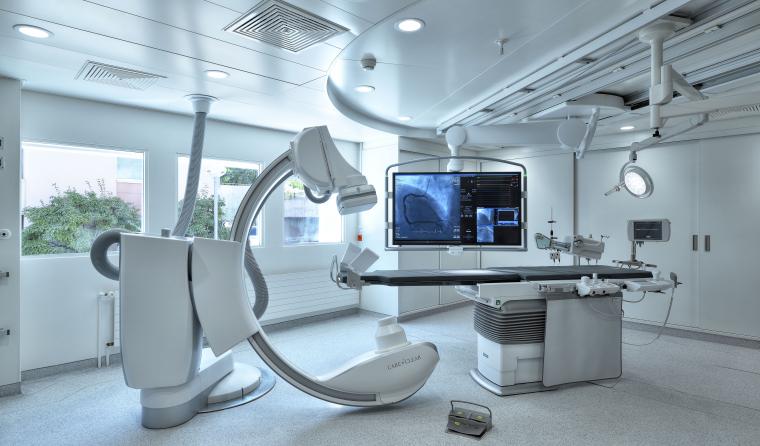
The various activities at the Interventional Cardiology Centre at La Source are listed below:
Angiography
Angiography is a medical imaging technique dedicated to viewing the state of the coronary arteries that feed the cardiac muscle. To access it, the cardiologist can use the radial artery (wrist) or the femoral artery (groin), using local anesthesia. Injecting an iodine-based contrasting solution through a catheter inserted either through the femoral artery (groin) or through the radial artery (wrist) enables the visualisation of anatomical aspects and assessment of any anomalies.
Angioplasty
Following coronary angiography, if one or more narrowings are found, the cardiologist may decide to perform a dilation (angioplasty). Using a balloon and stent, the cardiologist will restore the caliber and blood flow of the artery. Sometimes the location or severity of the lesions found during the examination prevent immediate treatment in the cardiac catheterization laboratory; the patient is then referred to a doctor specializing in cardiac surgery for specific care.
Left-to-right catheterisation
Right catheterisation involves inserting a catheter into a vein (usually the femoral vein) to reach the right side of the heart. This catheter is inserted into the various right heart chambers to measure blood pressure and oxygen saturation levels. This test is often performed before valvuloplasty (valve replacement) or to detect pulmonary hypertension. It is usually combined with coronary angiography.
Transoesophageal echocardiography (TOE)
An ultrasound probe is introduced into the oesophagus to produce images of the heart chambers, their movements, valves and blood flow in the cardiac cavities.
Pericardiocentesis
Pericardial effusion (accumulation of fluid in the membrane that surrounds the heart) is a critical emergency that is treated using a needle and catheter to remove accumulated fluid preventing the cardiac muscle from functioning correctly.
Fitting a pacemaker or defibrillator
Placed in the chest cavity under the skin during a procedure which takes place in an operating theatre, this device emits an electrical pulse that stimulates the heart to regain its normal rhythm in the event of the slowing of normal cardiac rhythms or other related issues.
Patent foramen ovale closure (PFO) and interatrial communication (IAC)
Treatment of these diseases is possible without resorting to surgery, by inserting a system that closes the communication between the two atria. These interventions often take place under local (PFO) or general (IAC) anaesthetic.
Renal denervation
Renal denervation is a procedure usually performed using a catheter inserted into the femoral artery, which involves destroying (using radiofrequency, ultrasound, or chemical injection) the sympathetic nerve fibers located around the renal arteries. This treatment is used to treat high blood pressure.
Procedure
Preparing for these tests or interventions as well as the monitoring required during the first hours immediately afterwards takes place in a specific care unit and is performed by a dedicated team of nurses.
Patients can go home either on the same day or the following one, depending on the length of the surveillance period required. Depending on the opinion of the cardiologist, who is seen consistently before your departure, you will be able to go back to your normal daily activities very quickly. The medical team and interventional cardiology nurse will ensure your safety and comfort before, during and after the examination.
In the event of a hospitalisation lasting less than one day (maximum departure before midnight), these services will be paid for by your basic insurance and do not require supplementary insurance.
Deputy Head Nurse
Michel MARCLAY
Head Nurse of the Intensive Care and Interventional Cardiology
Doctors list_
-
B
-
Doctor Basti Arya, 1012 Lausanne
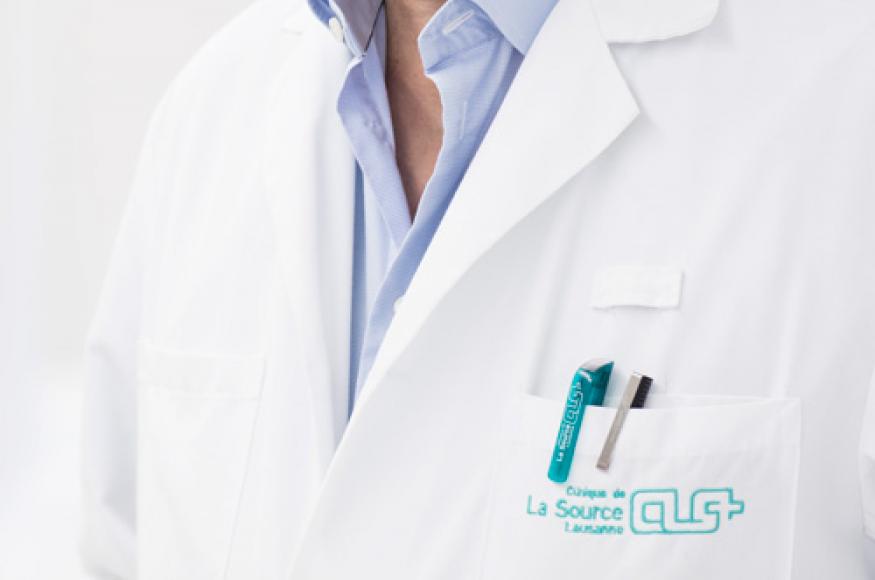
Specialist in :
CardiologieChemin de Rovéréaz 5
1012 Lausanne
Spoken languages : Français
-

Specialist in :
Cardiologie
Médecine interneAvenue Jomini 8
1004 Lausanne
Spoken languages : Français
-
Doctor Bisch Laurence, 1260 Nyon

Specialist in :
CardiologieHôpital de Nyon
Chemin Monastier 10
Rez-de-Chaussée/Bâtiment Le Paléo
1260 Nyon
Spoken languages : Allemand, Anglais, Espagnol, Français
-
-
C
-
Doctor Carroz Patrice, 1950 Sion
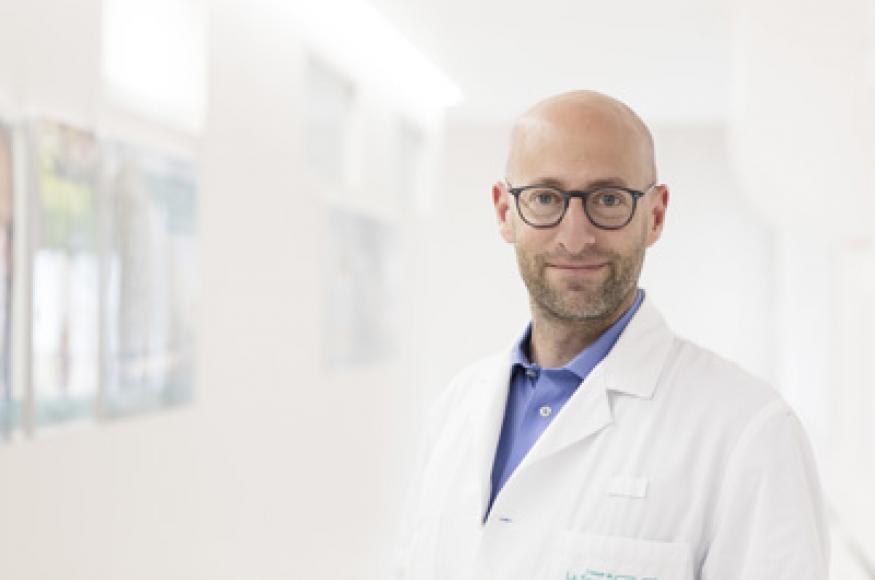
Specialist in :
Cardiologie
Médecine interne généraleRue de Pré-Fleuri 9
1950 Sion
Spoken languages : Allemand, Anglais, Français
-
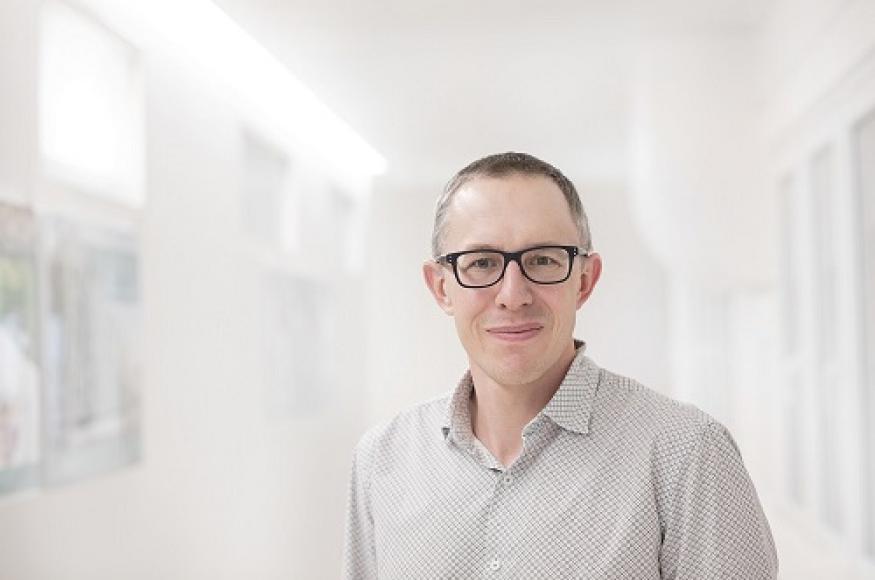
Specialist in :
Cardiologie
Médecine interneAvenue Haldimand 57
1400 Yverdon-les-Bains
Spoken languages : Français
-
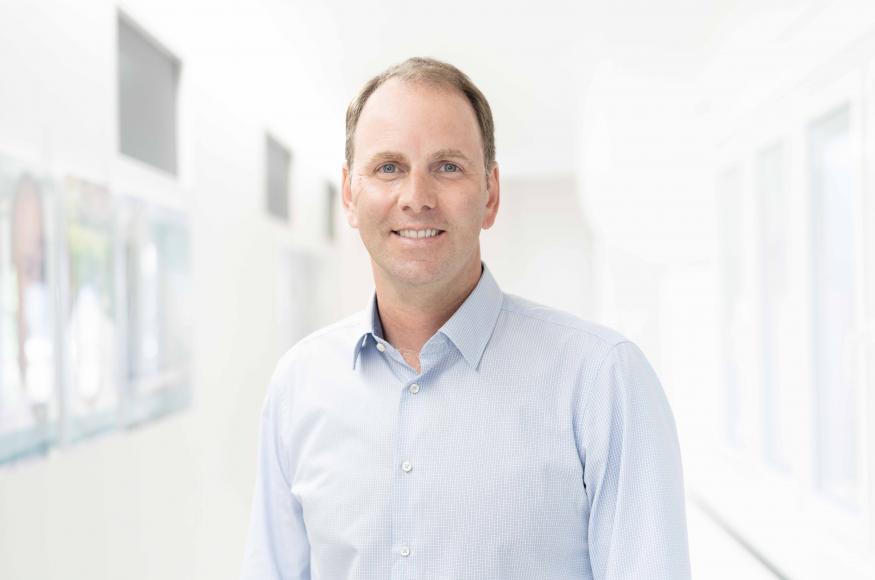
Specialist in :
Cardiologie
Médecine interne Other specialities :
Médecin d'urgence SSMUSRue des Chavannes 4A
1304 Cossonay-Ville
Spoken languages : Français
-
-
E
-
Professor Eeckhout Eric, 1800 Vevey

Specialist in :
CardiologieRue de la Clergère 1
c/o Centre Cardio Vasculaire La Riviera
1800 Vevey
Spoken languages : Français
-
-
F
-
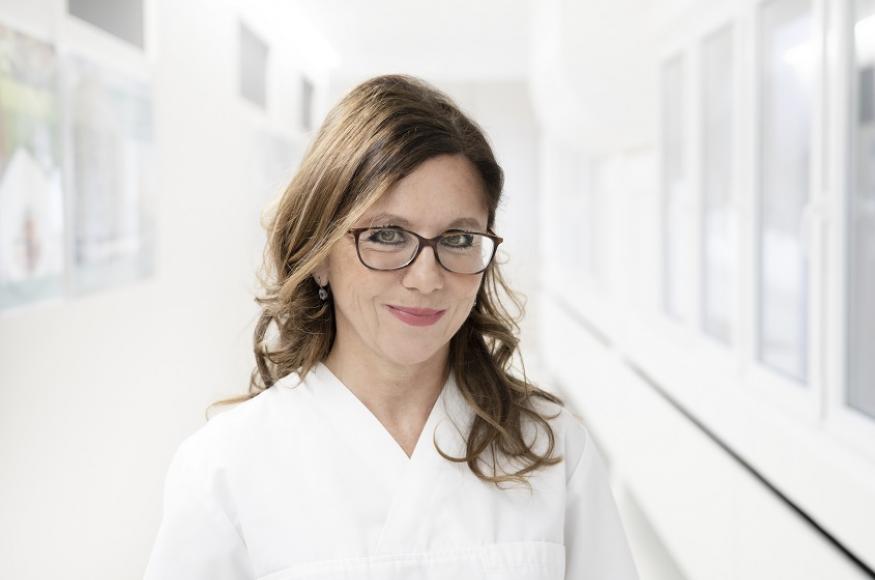
Specialist in :
Cardiologie
Médecine interneAvenue Louis-Ruchonnet 18
1003 Lausanne
Spoken languages : Français
-

Specialist in :
CardiologieYcardiocab Sàrl
Rue de la Plaine 29
1400 Yverdon-les-Bains
Spoken languages : Français
-
-
G
-

Specialist in :
Cardiologie
Médecine interneHôpital de St-Loup - eHnv
1318 Pompaples
Spoken languages : Français
-
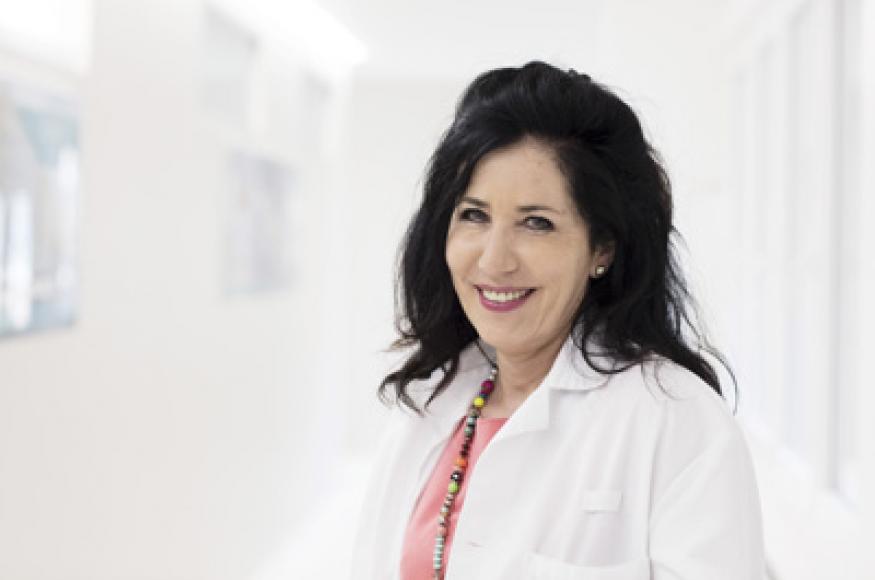
Specialist in :
Cardiologie
Médecine interneAvenue Jomini 8
1004 Lausanne
Spoken languages : Français
-
Doctor Graf Denis, 1006 Lausanne

Specialist in :
Cardiologie
Médecine interne -

Specialist in :
CardiologieMaison Santé Chablais
Chemin du Verger 3
1868 Collombey
Spoken languages : Français
-

Specialist in :
CardiologieRue de la Mèbre 2
1020 Renens VD
Spoken languages : Français
-
-
H
-

Specialist in :
Cardiologie
Médecine interneGrand-Rue 62
1820 Montreux
Spoken languages : Français
-
-
I
-
Doctor Imsand Christophe, 1950 Sion

Specialist in :
Cardiologie
Médecine interne
-
-
K
-
Doctor Katz Eugène, 1004 Lausanne
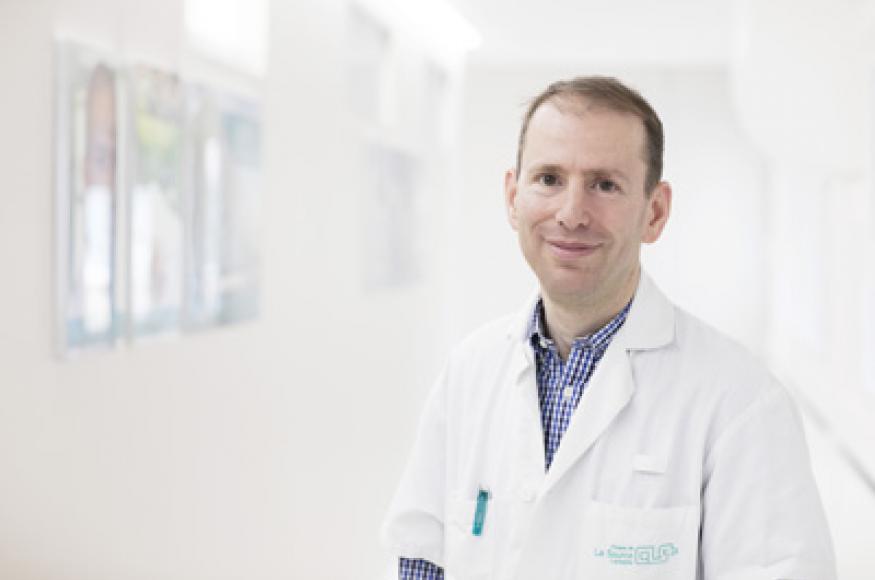
Specialist in :
CardiologieAvenue Jomini 8
1004 Lausanne
Spoken languages : Français
-
Doctor Koestner Simon, 1110 Morges
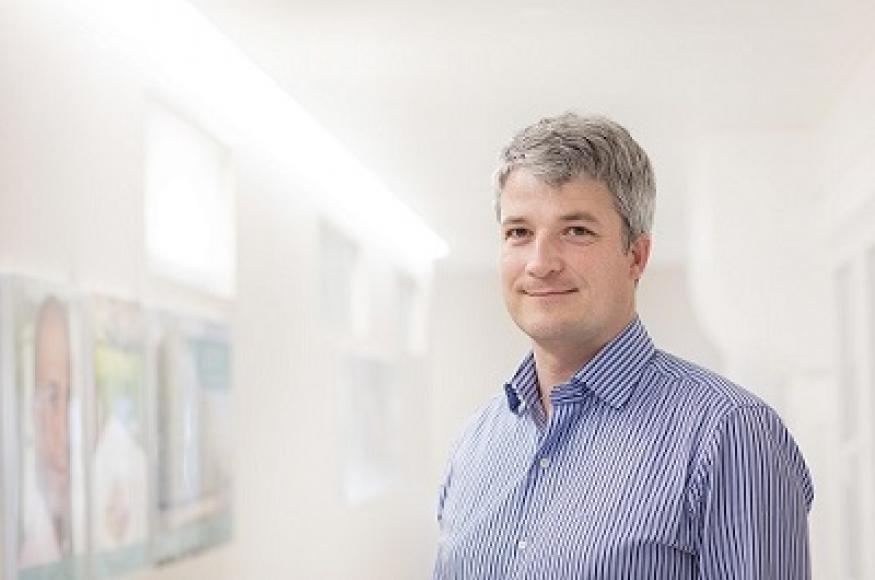
Specialist in :
CardiologieAvenue des Pâquis 34
1110 Morges
Spoken languages : Allemand, Anglais, Français
-
-
L
-
Doctor Locca Didier, 1003 Lausanne

Specialist in :
CardiologieCentre Cardiovasculaire du Grand-Chêne
Rue du Grand-Chêne 8
1003 Lausanne
Spoken languages : Français
-
Doctor Lyon Xavier, 1004 Lausanne

Specialist in :
Cardiologie Other specialities :
Cardiologie interventionnelle
IRM cardiaqueAvenue Jomini 8
1004 Lausanne
Spoken languages : Anglais, Français
-
-
M
-

Specialist in :
Cardiologie
Médecine interne généraleAvenue de la Gare 111
1470 Estavayer-le-Lac
Spoken languages : Anglais, Français
-
Doctor Menetrey Régis, 1009 Pully
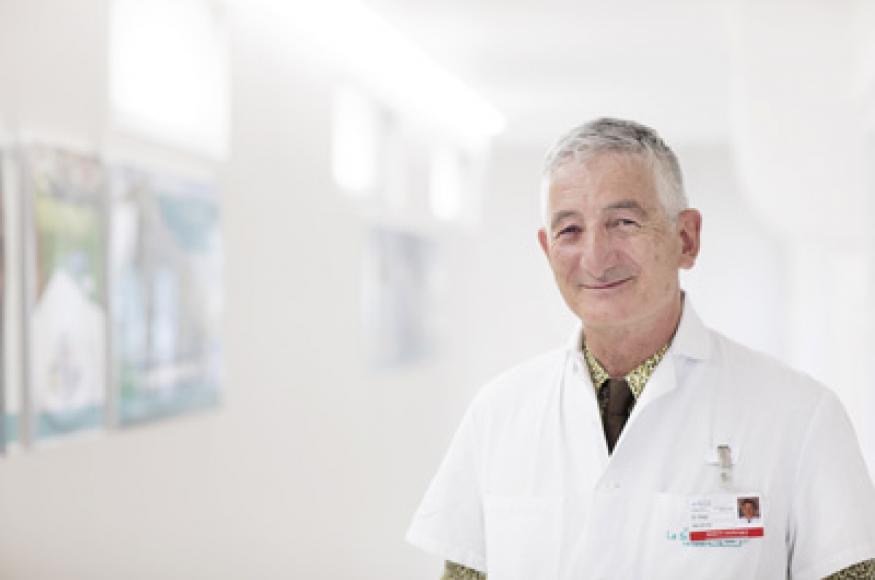
Specialist in :
CardiologieAvenue C.-F. Ramuz 99
1009 Pully
Spoken languages : Français
-
-
R
-
Doctor Rapp Fabrice, 1800 Vevey 1

Specialist in :
Cardiologie
Médecine interneCardio Riviera SA
Rue du Simplon 16
1800 Vevey 1
Spoken languages : Français
-
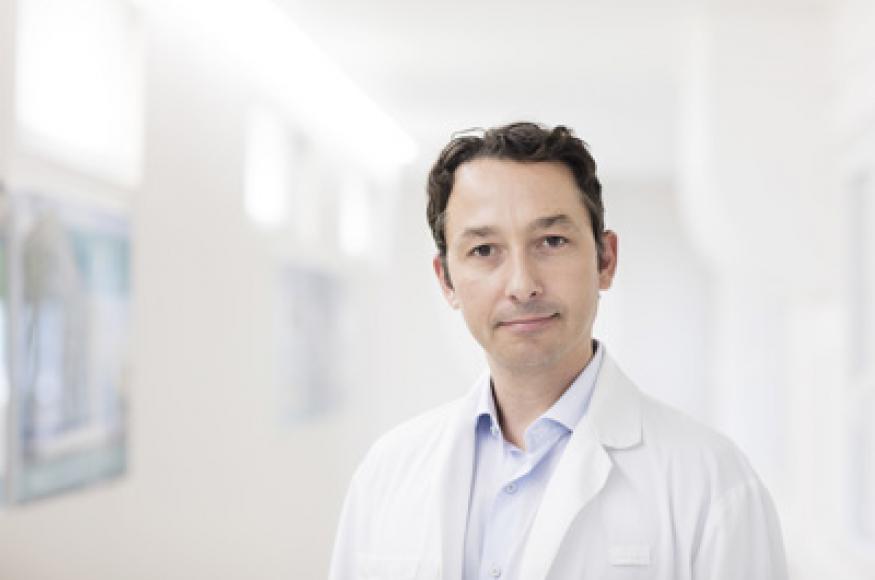
Specialist in :
CardiologieAvenue Jomini 8
1004 Lausanne
Spoken languages : Anglais, Français
-

Specialist in :
Cardiologie Other specialities :
Cardiologie interventionnelleMedbase Neuchâtel La Côte
Rue du Petit-Berne 14
2035 Corcelles NE
Spoken languages : Allemand, Anglais, Français
-

Specialist in :
Cardiologie
Médecine interneAvenue Général-Guisan 111
1009 Pully
Spoken languages : Allemand, Anglais, Français
-

Specialist in :
Cardiologie Other specialities :
Cardiologie interventionnelleCentre cardio vasculaire La Rivièra
Rue de la Clergère 1
1800 Vevey
Spoken languages : Français
-
Doctor Roux Yann, 1700 Fribourg

Specialist in :
Cardiologie
Médecine interne générale Other specialities :
Cardiologie interventionnelleBoulevard de Pérolles 4
1700 Fribourg
Spoken languages : Allemand, Anglais, Français
-
-
S
-
Doctor Savcic Milos, 1003 Lausanne
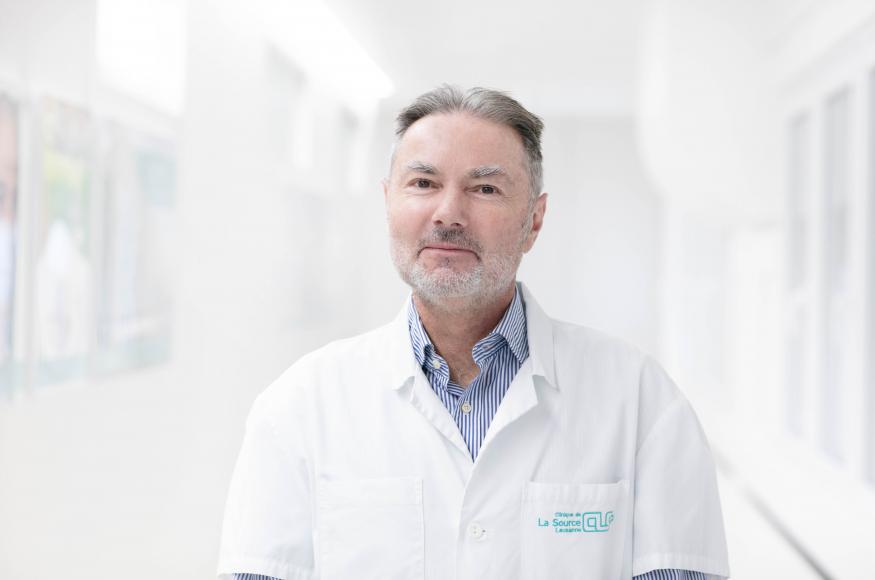
Specialist in :
Cardiologie
Médecine interneAvenue de Savoie 10
1003 Lausanne
Spoken languages : Français
-

Specialist in :
CardiologieAvenue Louis-Ruchonnet 18
1003 Lausanne
Spoken languages : Allemand, Anglais, Français
-
Doctor Schnetzler Bruno, 1260 Nyon

Specialist in :
Cardiologie
Médecine interne -
Doctor Schnyder Guido, 1800 Vevey

Specialist in :
Cardiologie
Médecine interne Other specialities :
Cardiologie interventionnelleCentre cardio vasculaire La Rivièra
Rue de la Clergère 1
1800 Vevey
Spoken languages : Français
-

Specialist in :
CardiologieAvenue de Rumine 31
1005 Lausanne
Spoken languages : Français
-
 Privat-Docent
Privat-DocentSpecialist in :
CardiologieAvenue de Rumine 25
1005 Lausanne
Spoken languages : Français
-
Professor Stauffer Jean-Christophe, 1003 Lausanne
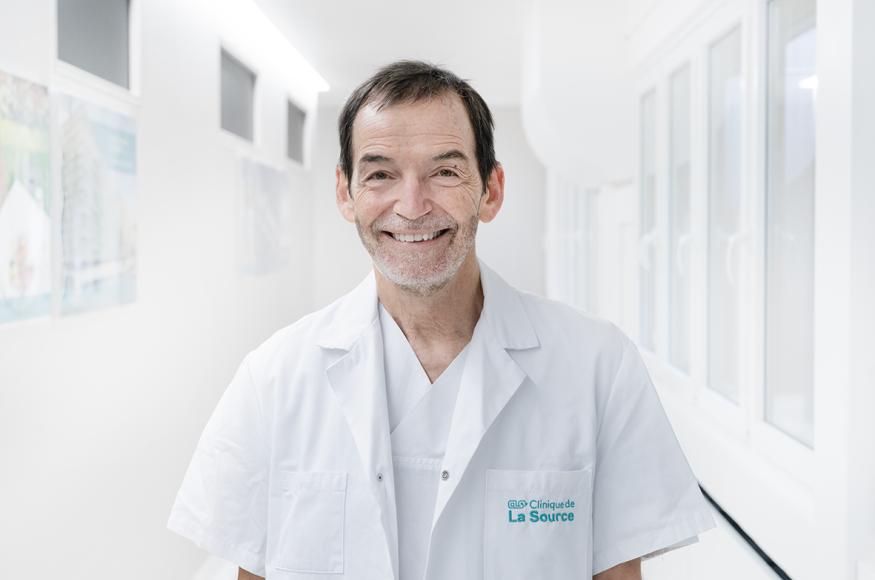
Specialist in :
Cardiologie
Médecine interneCentre Cardiovasculaire du Grand-Chêne
Rue du Grand-Chêne 8
1003 Lausanne
Spoken languages : Français
-

Specialist in :
CardiologieCentre de cardiologie Morges
Rue des Charpentiers 9
1110 Morges
Spoken languages : Français
-
-
T
-

Specialist in :
CardiologieCentre Cardiovasculaire du Grand-Chêne
Rue du Grand-Chêne 8
1003 Lausanne
Spoken languages : Français
-
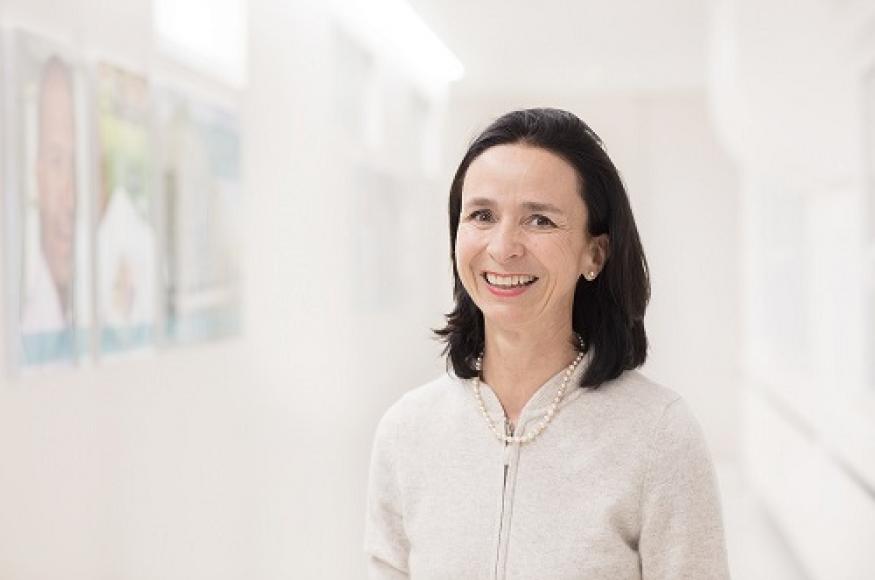
Specialist in :
CardiologieChemin des Croix-Rouges 14
1007 Lausanne
Spoken languages : Français
-
Doctor Tran Vân Nam, 1003 Lausanne
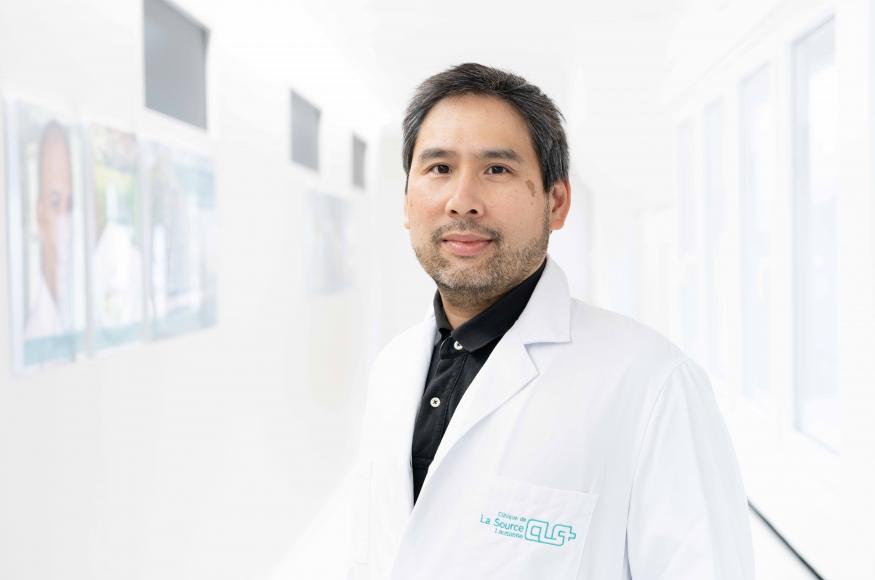
Specialist in :
Cardiologie
Médecine interne généraleRue du Grand-Chêne 8
1003 Lausanne
Spoken languages : Allemand, Anglais, Français
-
